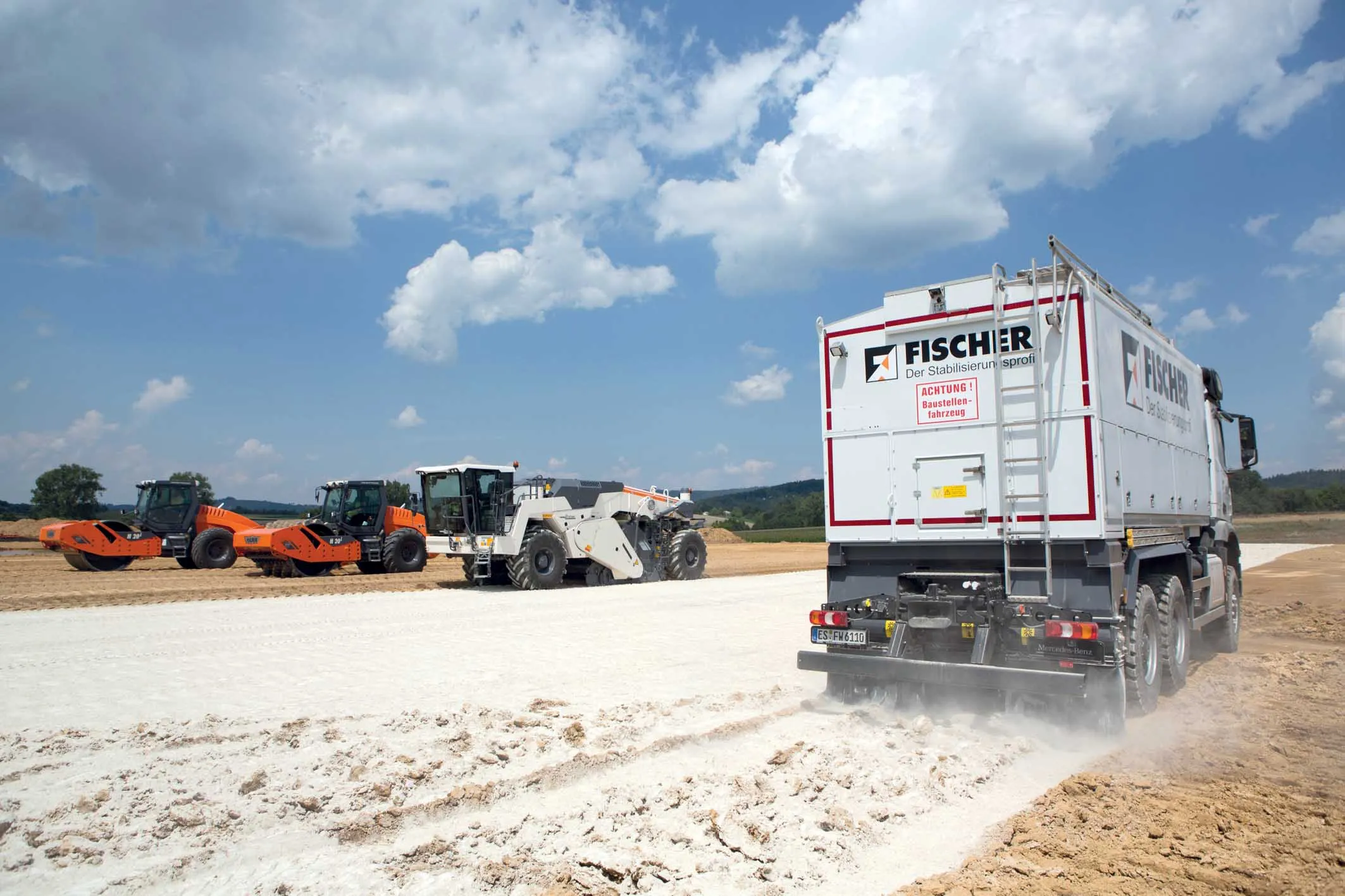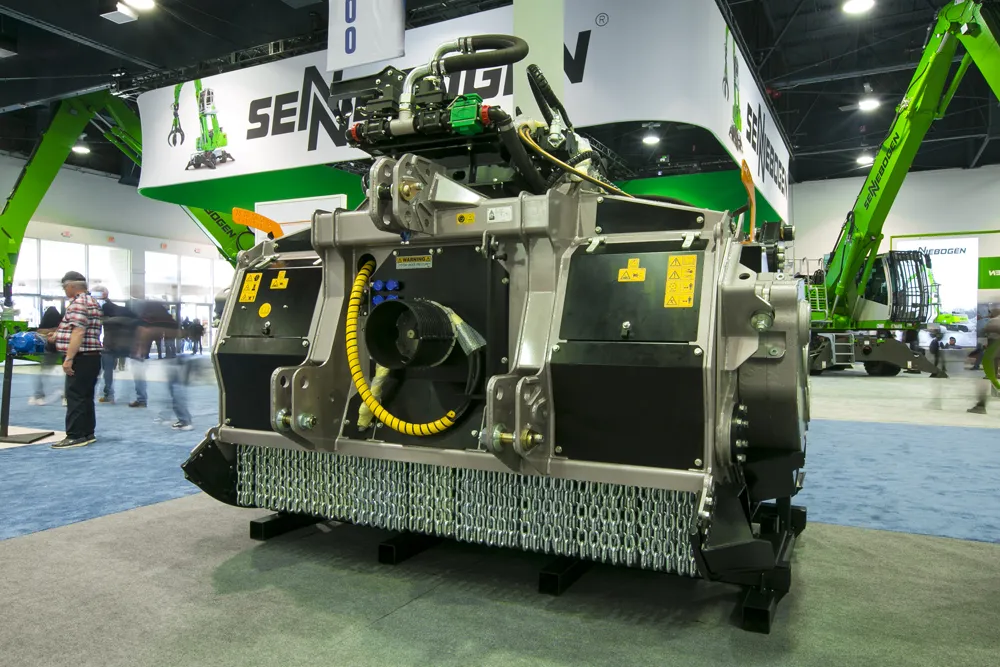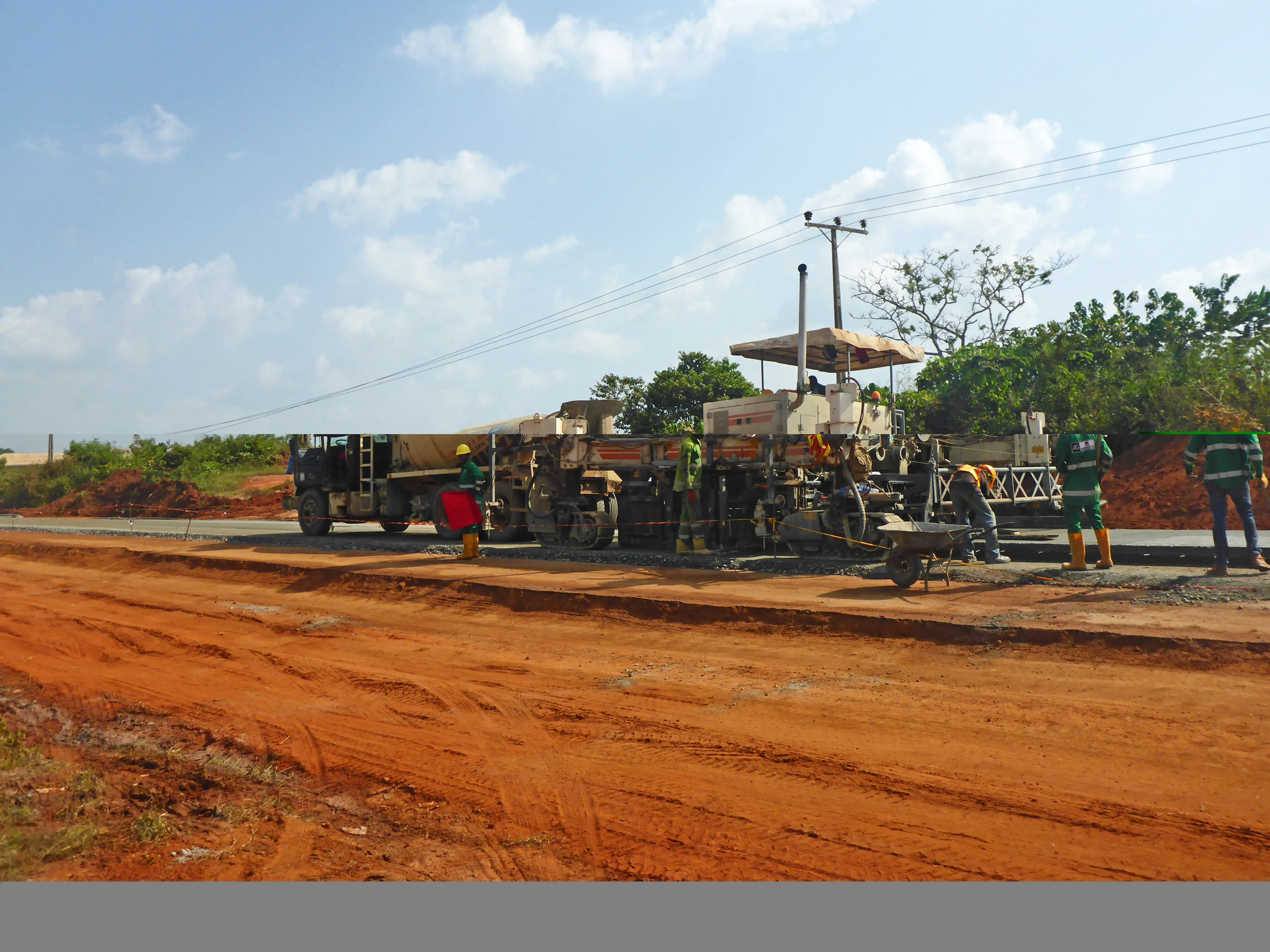Equipment from the Wirtgen Group has played an important role in stabilising the area being developed for a new industrial zone in Germany.
The site of a new factory located in Backnang, including access roads and parking areas has seen the use of the Wirtgen machines to help address poor ground conditions. The contractor employed a Wirtgen WR 200i soil stabiliser, two Hamm compactors and a Streumaster SW 16 MC binding agent spreader to improve the ground properties the soil.
The firm, Riva, expanded
May 13, 2015
Read time: 3 mins

Equipment from the Wirtgen Group has played an important role in stabilising the area being developed for a new industrial zone in Germany.
The site of a new factory located in Backnang, including access roads and parking areas has seen the use of the2395 Wirtgen machines to help address poor ground conditions. The contractor employed a Wirtgen WR 200i soil stabiliser, two 228 Hamm compactors and a Streumaster SW 16 MC binding agent spreader to improve the ground properties the soil.
The firm, Riva, expanded its facilities in 2012 with the building of a 9,000m2 production area. But growth of the business required the construction of a second production facility covering 15,000m2 as well as a new administration building.
Contractor Karl Fischer opted for soil stabilisation on the site however as the load-bearing capacity of the soil was insufficient. The firm realised that improving the soil would be more cost-effective than removing the soil on the 50,000m2 site and replacing it with more suitable materials.
In consultation with the client, the firm opted to use the simplest and most economic solution, soil stabilisation. The contractor explained that processing the existing soil allowed it to save costs as well as the time needed for replacement. And this method was also able to deliver a high-quality base with an adequate load-bearing capacity.
The Streumaster binding agent spreader, Wirtgen soil stabilisers and Hamm rollers were then given the challenge of moving 100,000m3 of soil.
The Streumaster SW 16 MC binding agent spreader carried out the initial work. Mounted on a three-axle truck, the module unit has a binding agent container capacity of 16m³. Its high performance and simple loading system allowed high productivity and a total of 6,000tonnes of binding agent were spread on the Backnang site.
The spreading and distribution of the binding agent, quicklime, were controlled electronically, coordinating the operation of the conveyor chain, transverse augers, metering feeders and control terminal. This allowed high spreading accuracy to be achieved. The novel self-cleaning effect of the rotary vane feeder meant that precision and performance were optimised throughout the project, while the integrated automatic dust-collecting filter system allowed dust-free loading of the spreader.
To mix the binding agent into the soil, Fischer used a Wirtgen WS 250 tractor-towed stabiliser. Fischer also used a Wirtgen recycler and WR 200i soil stabiliser.
The WR 200i mixed the soil homogeneously with the spread binding agent down to a depth of 500mm. The soil-binding agent mixture was able to provide high tensile, compressive and shear strength as well as lasting water and frost resistance and volume stability. With its 324kw diesel, the WR 200i achieved up to 8,000m2 on this site, while operating at a width of 2m and a depth of up to 500mm.
Lastly, two compactors from Hamm were used to complete the area. These were an H 20i in padfoot configuration to precompact and another standard H 20i to finish the work.
The site of a new factory located in Backnang, including access roads and parking areas has seen the use of the
The firm, Riva, expanded its facilities in 2012 with the building of a 9,000m2 production area. But growth of the business required the construction of a second production facility covering 15,000m2 as well as a new administration building.
Contractor Karl Fischer opted for soil stabilisation on the site however as the load-bearing capacity of the soil was insufficient. The firm realised that improving the soil would be more cost-effective than removing the soil on the 50,000m2 site and replacing it with more suitable materials.
In consultation with the client, the firm opted to use the simplest and most economic solution, soil stabilisation. The contractor explained that processing the existing soil allowed it to save costs as well as the time needed for replacement. And this method was also able to deliver a high-quality base with an adequate load-bearing capacity.
The Streumaster binding agent spreader, Wirtgen soil stabilisers and Hamm rollers were then given the challenge of moving 100,000m3 of soil.
The Streumaster SW 16 MC binding agent spreader carried out the initial work. Mounted on a three-axle truck, the module unit has a binding agent container capacity of 16m³. Its high performance and simple loading system allowed high productivity and a total of 6,000tonnes of binding agent were spread on the Backnang site.
The spreading and distribution of the binding agent, quicklime, were controlled electronically, coordinating the operation of the conveyor chain, transverse augers, metering feeders and control terminal. This allowed high spreading accuracy to be achieved. The novel self-cleaning effect of the rotary vane feeder meant that precision and performance were optimised throughout the project, while the integrated automatic dust-collecting filter system allowed dust-free loading of the spreader.
To mix the binding agent into the soil, Fischer used a Wirtgen WS 250 tractor-towed stabiliser. Fischer also used a Wirtgen recycler and WR 200i soil stabiliser.
The WR 200i mixed the soil homogeneously with the spread binding agent down to a depth of 500mm. The soil-binding agent mixture was able to provide high tensile, compressive and shear strength as well as lasting water and frost resistance and volume stability. With its 324kw diesel, the WR 200i achieved up to 8,000m2 on this site, while operating at a width of 2m and a depth of up to 500mm.
Lastly, two compactors from Hamm were used to complete the area. These were an H 20i in padfoot configuration to precompact and another standard H 20i to finish the work.









